calsfoundation@cals.org
Muslims
Islam is the world’s second-largest religion, with 7 million Muslims living in the United States and more than 2.1 billion all over the globe. The largest concentrations of Muslims can be found in South Asia, the Middle East, and Africa, with Indonesia being the largest Muslim country. The majority of Muslims began arriving in Arkansas in the 1960s as part of an exchange program with the universities in the state. Most of the students came from the Middle East, India, and Bangladesh. The universities had no formal student organizations at the time, but the University of Arkansas (UA) in Fayetteville (Washington County), Arkansas State University (ASU) in Jonesboro (Craighead County), and the University of Arkansas at Little Rock (UA Little Rock) all now have large Muslim student organizations.
Islam teaches an uncompromising unity and oneness with God (Allah) which is the basic foundation of the religion. This is called tawhid and is represented by the mantra: “There is no god but God, and Muhammad is the Prophet of God.” The Muslims’ holy book is called the Quran and is believed to be the exact word of Allah as told to the Prophet Muhammad. Islam has five pillars, or obligations, that are essential to the life of a Muslim. The five pillars are profession of faith in God, prayer, fasting, almsgiving, and pilgrimage. All Muslims are required to pray five times a day and must orient themselves to face Mecca while praying. Mecca is the Islamic holy city and is located in present-day Saudi Arabia. Once in his or her lifetime, a Muslim is expected to make a pilgrimage, or hajj, to this holy place. The word “Islam” is taken from the Arabic word for peace, salam. Islam is above all else a peaceful religion and encourages Muslims to seek peace and harmony in all relationships.
The earliest known mosque in Arkansas was established in 1969 at 10th and Schiller in Little Rock (Pulaski County). The first minister was Roy X. The center primarily served a congregation of mostly African-American members of the Nation of Islam. Today, under the name Islamic Center for Human Excellence (also known as New Africa), the center is located on Wright Avenue and serves 350 members, with those numbers increasing.
In 1992, the Islamic Center of Little Rock (ICLR) was founded by Hashim Ghori, Ahmed Golzar, M. Hamid Hussain, Abdul Hamid Patel, Ali U. Shaikh, and Ali Akbar. The founders are all originally from India and moved to the state around 1978. They chose a location on Anna Street next to UA Little Rock in a 900-square-foot house. Their numbers began to grow as Muslim doctors were accepted into residency and fellowship programs at the University of Arkansas for Medical Sciences (UAMS) and began to settle in Little Rock with their families. The center bought two adjacent houses and began construction of a much larger building in May 1994. The new center was officially opened on January 13, 1996, and served sixty members. In 2001, the center opened an Islamic school called the Huda Academy across the street. The private, accredited academy teaches students from pre-kindergarten through the sixth grade and offers Arabic and Quran classes. By 2012, the ICLR had more than 300 members and offered Quran classes, daily prayers, and Islamic weddings.
The Islamic Center of Jonesboro was founded on August 17, 1983. The center works with the Muslim Students Association at ASU and holds daily prayers for members of the faith.
Muslims in northwest Arkansas began arriving because of the presence of several large companies: Walmart Inc., Tyson Foods, and J. B Hunt trucking all have headquarters in Benton County. The Islamic Center of Northwest Arkansas began in 1994 in Fayetteville to serve the needs of the growing Muslim population. It provided a place to pray and Arabic and Quran classes. The Bentonville Islamic Center was established in 2006, offering the same services.
In 2007, New Africa began construction on a Muslim community in Little Rock near Boyle Park off of John Barrow Road. Originally, there was to be a mosque, shopping center, school, and houses, but this was scaled down to twenty-two houses, a school, and community center because of limited space. However, in 2017, plans for such a model Muslim neighborhood were abandoned.
In the twenty-first century, nearly every major city with a college or university in the state of Arkansas has a mosque. Little Rock has two mosques serving the community, and Fayetteville, Fort Smith (Sebastian County), Jonesboro, and Pine Bluff (Jefferson County) each have one mosque to meet the needs of Muslims all over the state.
After the terrorist attacks on September 11, 2001, the Muslim community of Arkansas was saddened and horrified, quickly condemning the attacks. Islam strictly forbids religious extremism and the use of violence against innocent lives. Arkansas Muslims have encouraged, and continue to encourage, people in the state to visit mosques to learn more about Muslims’ beliefs and practices and to promote tolerance and understanding with other religious groups. However, anti-Muslim sentiment remains. For example, in October 2016, during a political campaign season that included openly expressed hatred of Muslims, three men vandalized a mosque in Fort Smith; they were arrested the following February.
In 2016, the Madina Institute, the first mosque in Arkansas founded by a woman, opened in the western part of Little Rock. The founder, Sophia Said, was also a producer on the 2019 film Marjoun and the Flying Headscarf.
For additional information:
Bentonville Islamic Center. http://www.bic-ar.org/ (accessed February 28, 2025).
Coleman, Ron. “Muslim Minister at LR Explains Islam Nation. Prophet Muhammad.” Arkansas Gazette, August 29, 1973, p. 3A.
Farrar, Lara. “Muslims Still Feel Effects from 9/11.” Arkansas Democrat-Gazette, September 9, 2021, pp. 1A, 5A. Online at https://www.arkansasonline.com/news/2021/sep/09/20-years-after-911-some-arkansas-muslims-still/ (accessed February 28, 2025).
Haman, John. “Allah behind Bars.” Arkansas Times, July 7, 1994, pp. 15–17.
Hays, Steele. “LR Imam Reaffirms Muslim Creed of Nonviolence.” Arkansas Gazette, March 20, 1977, p. 15A.
Huda Academy. http://www.thehudaacademy.org/ (accessed February 28, 2025).
Islamic Center of Jonesboro. http://icjar.org/ (accessed February 28, 2025).
Islamic Center of Little Rock. http://theiclr.org/ (accessed February 28, 2025).
Koon, David. “Islam in Arkansas.” Arkansas Times, December 19, 2003, pp. 10, 13–17.
Lockwood, Frank E. “Ramadan Revival.” Arkansas Democrat-Gazette, April 30, 2022, pp. 4B, 5B. Online at https://www.arkansasonline.com/news/2022/apr/30/ramadan-revival/ (accessed February 28, 2025).
Madina Institute. https://www.madinainstitute.us/ (accessed February 28, 2025).
Rosen, Marjorie. Boom Town: How Wal-Mart Transformed an All-American Town into an International Community. Chicago: Chicago Review Press, 2009.
Workman, John S. “‘Image’ Concerns Muslims.” Arkansas Gazette, December 10, 1979, pp. 1B, 2B.
Yousra Moussa
Little Rock, Arkansas
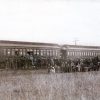
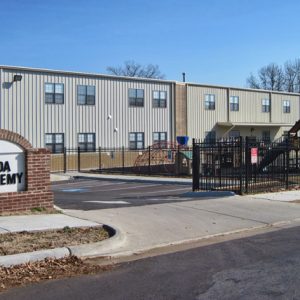
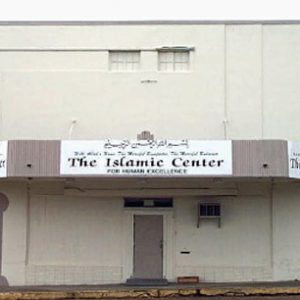
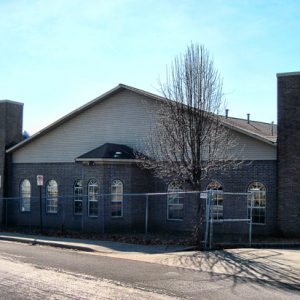
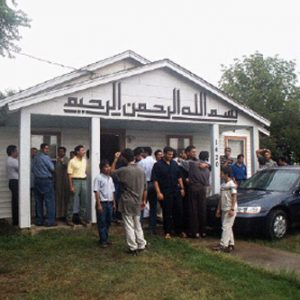
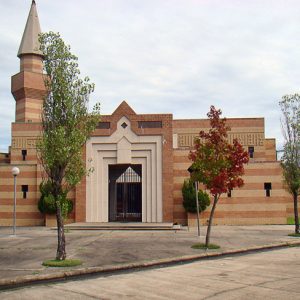




Comments
No comments on this entry yet.